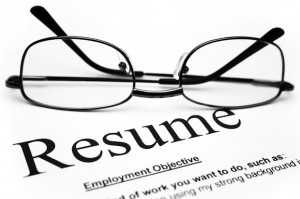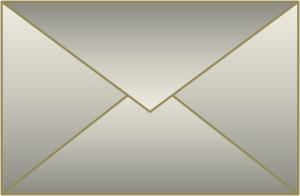 With the hundreds of thousands of resumes floating through cyberspace, being handed out at career fairs and passed among your friends, colleagues and hopefully an ever-expanding network, how do you make sure you stand out? The following addresses the four must haves for a winning resume.
With the hundreds of thousands of resumes floating through cyberspace, being handed out at career fairs and passed among your friends, colleagues and hopefully an ever-expanding network, how do you make sure you stand out? The following addresses the four must haves for a winning resume.
1. Targeted. When writing your resume, you must have a goal in mind, a target at which you’re aiming. As Stephen R. Covey says, “start with the end in mind.” If you don’t know what you want to do, how can you expect to get the message across to others.
From top to bottom, your resume needs to have a single purpose: if you’re looking for a sales position play up things like deals you’ve won, teams you’ve built and accounts you’ve managed; if operations is your bag, focus on processes you’ve implemented or improved and times you’ve cut costs; if you’re in marketing, accentuate the campaigns you’ve created, the channels you’ve expanded into, the market share you’ve won. You get the idea. You want to make it easy for the reader to see that you have everything it takes to succeed in the position for which you’re vying.
2. Marketing Statement. You should begin the document with a powerful marketing statement that really emphasizes your strengths. Remember that when you’re in a job search, you are your product. Therefore, you should stress what distinguishes you in the competitive job market, or in other words, develop your personal brand. That means name dropping if you’ve got great company names in your background, underscoring significant achievements and really highlighting what makes you the best choice.
I’ve had some clients send me the resumes they’re using that are just not working for them. One of the problems, the document begins with an objective statement regarding what it is they’re looking for. Objective statements are passé, from another era. The reason why marketing statements are so much more powerful: an objective statement is about what you want while a marketing statement is about your strengths and accomplishments and how they can be of use to your target audience. It’s not about you, it’s about what you can do for them.
3. Key Words. The importance of key words is twofold. Many hiring managers, recruiters and HR departments use software to scan resumes for key words. Additionally, when you post your resume on job boards or build your profile on sites like LinkedIn, potential employers and recruiters often use key words to search for good candidates. Besides the electronic aspect of key word searches, highlighting the key words helps the reader see the skills you bring to the table.
4. Results Oriented Accomplishments. For everything we do in our jobs, there’s a goal that you’re striving for; did you achieve it? I often see resumes that talk about what the individual did, but fail to say whether they did it successfully. Also, whenever possible it’s great to quantify your accomplishments. If you grew sales by $2 million then say that, if you reduced costs by 50% that should be in there too. Quantifying accomplishments makes them stand out and adds credibility to your achievements.
I often have clients tell me that they have trouble “blowing their own horn” or they just have a hard time telling their own story. They’ve realized the importance of having a resume that illustrates their personal brand that they can use as a marketing tool to get in front of decision makers and that’s why they’ve turned to The Imagemakers, Ink!, to help them tell a compelling story that makes them stand out from the crowd.
~Linda
 Time and time again my clients ask me if a cover letter is really necessary and if anyone really reads them. I’ve surveyed HR professionals, recruiters and hiring managers and the answer is a resounding YES! Of course, the cover letter has to be good, a bad cover letter can land you at the back of the pack.
Time and time again my clients ask me if a cover letter is really necessary and if anyone really reads them. I’ve surveyed HR professionals, recruiters and hiring managers and the answer is a resounding YES! Of course, the cover letter has to be good, a bad cover letter can land you at the back of the pack.
